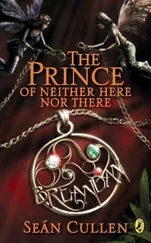“Libertarians have sound ideas but are not always great writers, and are not usually authorities on literature and literary matters. Rarer still is the literary essayist who is not confused or ignorant about politics and economics. It is thus refreshing to encounter Sean Gabb’s literary writing. A long-time libertarian activist and writer who is also a superb novelist and literary essayist, an honest and clear writer, he is our modern libertarian man of letters. This splendid and sparkling collection of essays provides fascinating insights into literature and other literary topics, without the typical leftist baggage and economic illiteracy.”
Stephan Kinsella
More details here
Freedom of Speech in England: Its Present State and Likely Prospects
Sean Gabb
Hampden Press, London, 2013, 200pp
ISBN: 9781291545692
We live in a world where Lady Chatterley’s Lover is an A Level text, and where documentaries about oral sex are shown on television. Even so, the battle for freedom of speech has not been won. More fiercely than ever in England, it rages on other fronts. There are panics over the promotion of terrorism, and the alleged sexualisation of children. The feminists have taken up the demand for sexual puritanism even before the churches can fully lay it aside.
Above all, there is the official war on “hate.” In the name of good community relations, or simply to protect minorities from being upset, whole areas of debate that once were free are now policed. Dissidents risk punishments that range between formal imprisonment and unemployability.
In this set of forthright, and often very controversial, essays, Sean Gabb puts the old case for freedom of speech in the changed circumstances of today. His subjects include holocaust denial, the possession of child pornography, the rights of BNP members, and the persecution of Emma West, the South London “Tram Lady.”
“Libertarians can perform no greater service to freedom and humanity than by coming to the defense of the indefensible. The greatest victories for liberty have been won by those who would champion the rights of the outcast and despised rather than the popular or sympathetic…. In past eras, authoritarian rulers and censors who would seek to destroy liberty did so in the name of protecting society from religious heretics. In the modern world, the authoritarians and censors have not gone away. They have simply reinvented themselves as righteous crusaders against pornography or racism. Dr. Gabb’s book brilliantly exposes the contemporary Inquisition for what it is.”
(Keith Preston)
More details here
War and the National Interest: Arguments for a British Foreign Policy
Sean Gabb
Hampden Press, London, 2005, 158pp
ISBN: 9780954103231
British involvement in the war against Iraq may have been a crime: it was certainly a mistake. It advanced no British interest. It has instead caused thousands of deaths, and destabilised the Middle East, and has brought this country into various degrees throughout the world of hatred and ridicule. To say this, one does not need to be a socialist, or an internationalist, or in any sense disloyal to Queen and country. Opposition to the war is the most natural response of any conservative or libertarian.
So argues Sean Gabb in his latest book. Made up of essays written between September 2001 and May 2004, it can be read as a running commentary on the war with Iraq It may also be read as a sustained argument that the only legitimate foreign policy for the British Government is one that preserves the ability of the people of the United Kingdom to go safely about their everyday business. Such a policy need not be simple or direct, but it must credibly relate to this end.
Perhaps the only benefit this war has brought the country is the destruction of Tony Blair as a credible political figure. But great as it may be, can this be justified in terms of the suffering inflicted on others?
More details here
Conspiracies of Rome
Richard Blake
Hodder & Stoughton, London
Hardback Edition: February 2008
Paperback Edition: January 2009
368pp
ISBN: 9780340951125
Rome, 609 AD. Empire is a fading memory. Repeatedly fought over and plundered, the City is falling into ruins. Filth and rubble block the streets. Killers prowl by night. Far off, in Constantinople, the Emperor has other concerns. The Church is the one institution left intact, and is now flexing its own imperial muscle.
Enter Aelric of England: young and beautiful, sexually uninhibited, heroic, if ruthlessly violent—and hungry for the learning of a world that is dying around him. In this first of six novels, he’s only here by accident. Without getting that girl pregnant, and the resulting near-miss from King Ethelbert’s gelding knife, he might never have left Kent. But here Aelric is, and nothing on earth will send him back.
The question is how long he will stay on earth. A deadly brawl outside Rome sucks him straight into the high politics of Empire. There is fraud. There is pursuit. There is murder after murder. Soon, Aelric is involved in a race against time to find answers. Who is trying to kill him? Where are the letters everyone thinks he has, and what do they contain? Who is the one-eyed man? What significance to all this has the Column of Phocas, the monument just put up in the Forum to celebrate a tyrant’s generosity to Holy Mother Church?
Aelric does at last get his answers. What he chooses to do with them will shape the future history of Europe and the world….
“Fascinating to read, very well written, an intriguing plot and I enjoyed it very much.”
Derek Jacobi, star of
I Claudius and
Gladiator
More details here ( print) ( e-book)
Terror of Constantinople
Richard Blake
Hodder & Stoughton, London
Hardback Edition: February 2009
Paperback Edition: May 2010
420pp
ISBN: 9780340951149
610AD. Invaded by Persians and barbarians, the Byzantine Empire is also tearing itself apart in civil war. Phocas, the maniacally bloodthirsty Emperor, holds Constantinople by a reign of terror. The uninvaded provinces are turning one at a time to the usurper, Heraclius.
Just as the battle for the Empire approaches its climax, Aelric of England turns up in Constantinople. Blackmailed by the Papal authorities to leave off his career of lechery and market-rigging in Rome, he thinks his job is to gather texts for a semi-comprehensible dispute over the Nature of Christ. Only gradually does he realise he is a pawn in a much larger game.
What is the eunuch Theophanes up to? Why does the Papal Legate never show himself? How many drugs can the Emperor’s son-in-law take before he loses his touch for homicidal torture? Above all, why has wicked old Phocas taken Aelric under his wing?
To answer these questions, Aelric has nothing on his side but beauty, charm, intellectual brilliance and a talent for cold and ruthless violence.
“[Blake’s] plotting can seem off-puttingly anarchic until the penny drops that everyone is simultaneously embroiled in multiple, often conflicting, scams. Aelric’s survival among the last knockings of empire in Constantinople depends not on deducing who wants him dead, but who wants him dead at any given moment.”
The Daily Telegraph
More details here ( print) ( e-book)
Читать дальше












